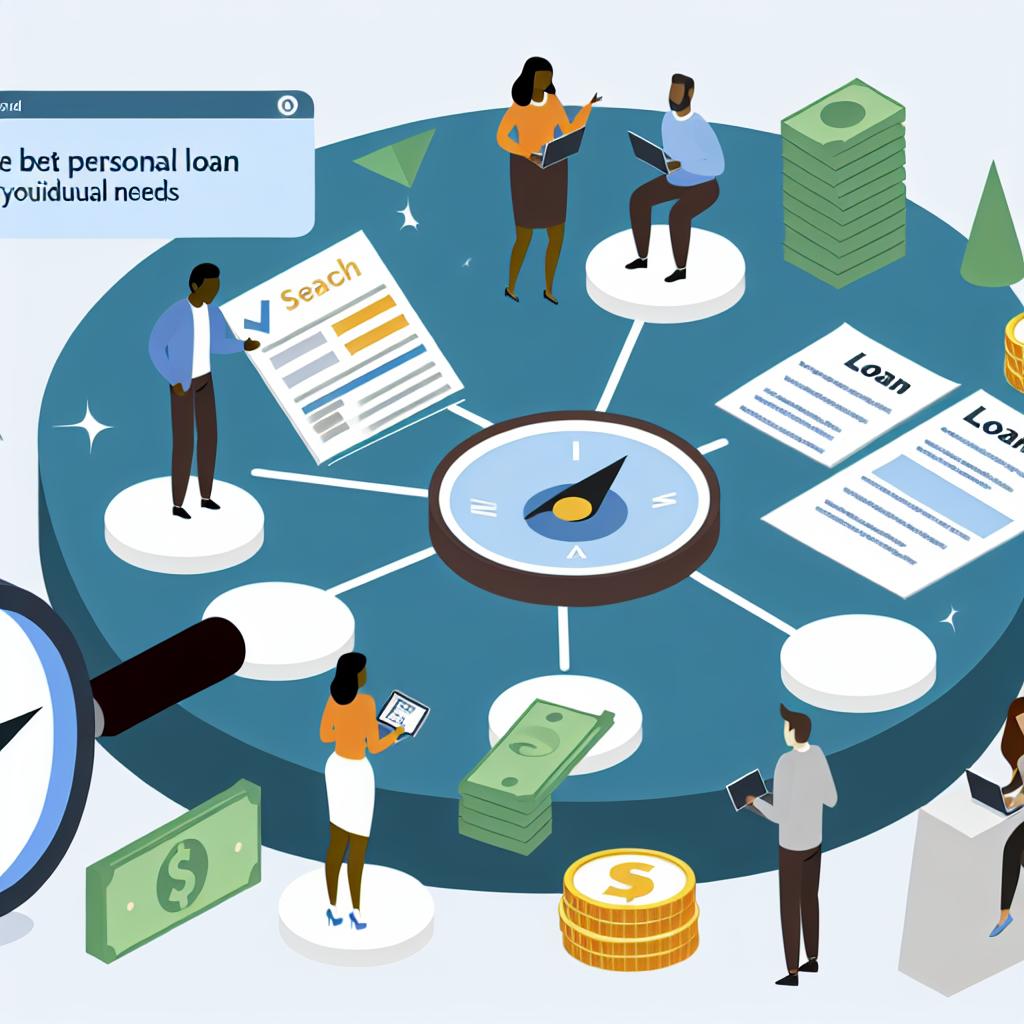Understanding Personal Loans
Personal loans can be an effective solution for covering significant expenses, consolidating debt, or managing unforeseen financial needs. These loans are unsecured, meaning they don’t require collateral, and are repaid in fixed monthly installments over a set period.
Factors to Consider When Choosing a Personal Loan
When selecting a personal loan, it is crucial to evaluate several factors to ensure it aligns with your financial situation and goals. Understanding these factors can help you make a more informed decision that suits your needs.
Interest Rates
The interest rate is a key component in determining the overall cost of your loan. It is advisable to compare rates across different lenders to ensure you are getting a competitive offer. Fixed rates offer predictability with stable monthly payments, allowing you to budget more effectively. This stability is beneficial when managing finances, especially if you prefer knowing exactly how much you need to pay each month. On the other hand, variable rates may vary over time, which can lead to fluctuating payment amounts and affect your budgeting over the life of the loan. Consider your risk tolerance and preferences when choosing between fixed and variable rates.
Loan Terms
Loan terms impact the duration of your repayment schedule and your monthly payment size. Understanding the length of the loan is critical for financial planning. Shorter terms generally mean higher monthly payments but less overall interest paid, which could save you money in the long run. Conversely, longer terms might reduce monthly payments but increase the total interest cost over the life of the loan. Weigh the benefits of faster repayment against the burden of higher monthly installments, especially if your income varies or is not very stable.
Fees and Charges
Be mindful of any associated fees, such as origination fees, late payment charges, or early repayment penalties. These fees can add to your loan’s overall cost and should be factored into your decision. Some lenders might have attractive interest rates but high fees that increase the effective cost of borrowing, so evaluate the total cost structure to get the best deal.
Credit Score Requirements
Lenders have varying credit score requirements, which influence eligibility and interest rates. Your credit score is a significant factor in determining the loan terms offered to you. Knowing your credit score can help gauge which lenders are likely to offer you favorable terms. You can obtain your credit report from various financial services or institutions. Aim to maintain a good credit score to improve your chances of securing a loan with favorable conditions.
Loan Amount Limits
It is important to confirm that the lender can provide the amount you need. Various lenders offer differing maximum and minimum loan limits. Before starting the application process, ensure that the lender offers a loan amount that aligns with your financial requirement. Over-borrowing can lead to unnecessary financial strain, while under-borrowing might not meet your needs.
Assessing Your Financial Situation
Before applying for a personal loan, take the time to examine how the loan fits into your overall financial landscape. Consider several aspects of your financial health:
- Current debt and additional monthly payments: Assess your existing debt obligations. Determine how new monthly payments will impact your current budget and ability to repay existing debts.
- Employment stability and income consistency: Consider the stability of your employment status and the reliability of your income. A stable job and consistent income provide a strong foundation for managing loan payments.
- Future financial plans: Evaluate any plans for significant expenses, such as purchasing a home or investing in education, which might impact your ability to make loan payments in the future.
Understanding these factors can help you decide whether taking out a personal loan is a sound financial choice or whether it might create unnecessary stress on your finances.
Shopping for the Best Loan
Researching various lenders, both online and traditional, can provide a comprehensive view of available loan options. The market offers diverse lenders with different terms and conditions, making it essential to shop around. Consider using comparison tools or financial advisors to find competitive offers that align with your financial needs.
Prequalification
Some lenders offer prequalification, which assesses loan options you might qualify for without a hard inquiry into your credit. This step can help you understand potential terms and avoid negatively impacting your credit score. Prequalification provides a preliminary view of the loan terms you might receive based on a soft credit check. It can guide you in selecting suitable lenders and avoiding unnecessary credit score inquiries.
Additionally, consider checking reviews and ratings of lenders to ensure you choose a reputable one. Personal recommendations or online reviews can provide insights into a lender’s customer service and reliability.
Conclusion
Choosing the right personal loan requires careful consideration of various factors, including interest rates, loan terms, associated fees, and personal financial circumstances. Each factor plays a vital role in determining the suitability of a loan for your needs. Conduct thorough research and consider prequalification to ensure you select a loan that suits your needs and reduces unnecessary financial stress. Taking these steps can lead to more effective financial management and help you achieve your financial goals without undue burden.

